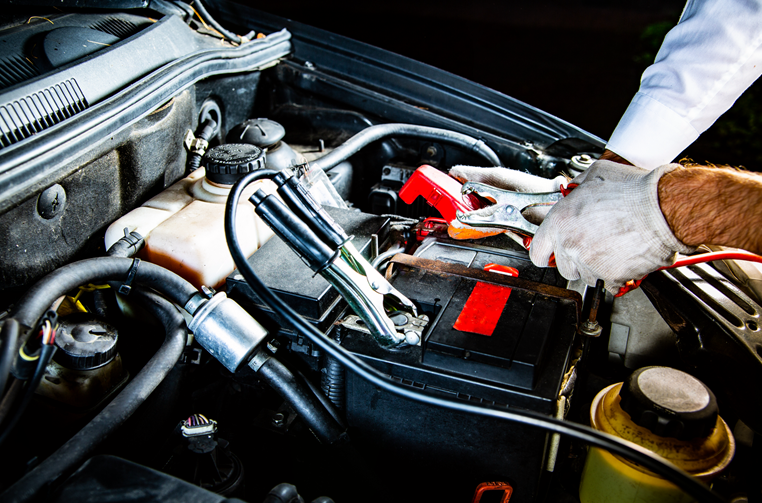Revolutionizing the Energy Industry: The Impact of Smart Grids and Lithium Batteries
In recent years, there has been a growing concern about the need to transition towards cleaner and more sustainable sources of energy. With the increasing demand for electricity and the urgency to reduce greenhouse gas emissions, the energy industry has been forced to explore new technologies and innovations. Two of the most promising advancements that are revolutionizing the energy industry are smart grids and lithium batteries.
Smart grids are a modernized version of the traditional electrical grid system. They incorporate advanced communication and automation technologies to optimize the generation, distribution, and consumption of electricity. By utilizing a network of sensors, meters, and control devices, smart grids enable real-time monitoring and management of energy flow. This allows for better coordination between power plants, renewable energy sources, and consumers, resulting in improved efficiency and reliability.
One of the key benefits of smart grids is their ability to integrate renewable energy sources into the grid. Traditional grids were designed to accommodate centralized power plants that rely on fossil fuels. However, with the increasing adoption of solar and wind energy, the generation of electricity is becoming more decentralized. Smart grids are capable of handling the variability and intermittency of renewable energy sources by dynamically adjusting the distribution and consumption of electricity. This not only reduces reliance on fossil fuels but also promotes the use of clean energy.
Lithium batteries, on the other hand, have emerged as a game-changer in the energy storage sector. Lithium-ion batteries, in particular, have gained popularity due to their high energy density, long cycle life, and fast charging capabilities. These batteries are widely used in portable electronic devices, electric vehicles, and now, in grid-scale energy storage systems.
The integration of lithium batteries into the energy industry has several advantages. Firstly, it enables better utilization of renewable energy. Energy generated from solar panels or wind turbines can be stored in lithium batteries during periods of low demand and released during peak hours. This reduces the need for backup power plants fueled by fossil fuels and allows for a more efficient use of clean energy.
Secondly, lithium batteries enhance grid stability and reliability. They provide a reliable source of power during blackouts or grid failures, ensuring uninterrupted electricity supply to critical infrastructure and residential areas. Additionally, they help balance the supply and demand of electricity, reducing the risk of power outages and grid instability.
Furthermore, lithium batteries facilitate the electrification of transportation. As the world moves towards a greener future, the demand for electric vehicles is increasing rapidly. Lithium batteries enable long-range driving, fast charging, and improved performance of electric vehicles, making them a viable alternative to traditional internal combustion engine vehicles. This not only reduces greenhouse gas emissions but also decreases our dependence on fossil fuels.
Despite these numerous benefits, there are still challenges that need to be addressed for the widespread adoption of smart grids and lithium batteries. One major hurdle is the cost. While the prices of lithium batteries have been decreasing steadily, they still remain relatively expensive compared to traditional energy storage options. Additionally, the installation and infrastructure costs associated with smart grids can be significant.

Another challenge is the need for regulations and policies that support the integration of these technologies. Governments and regulatory bodies need to incentivize the deployment of smart grids and lithium batteries through financial incentives and favorable policies. This will encourage investment in research and development, promote innovation, and accelerate the transition towards a cleaner and more sustainable energy future.
In conclusion, smart grids and lithium batteries are revolutionizing the energy industry by enabling the integration of renewable energy sources, enhancing grid stability, and promoting the electrification of transportation. While there are challenges to overcome, the potential benefits are significant. With continued advancements in technology, increased investment, and supportive policies, smart grids and lithium batteries have the power to reshape the energy landscape and pave the way towards a more sustainable future.
-
 As the world moves towards more sustainable energy solutions, lithium iron phosphate (LiFePO4) batteries have emerged as a popular choice for renewable energy storage. These batteries are known for their high energy density, long cycle life, and stable performance. If you own a 48V LiFePO4 battery, it is essential to choose the right charger to maintain its lifespan and performance....Læs mere
As the world moves towards more sustainable energy solutions, lithium iron phosphate (LiFePO4) batteries have emerged as a popular choice for renewable energy storage. These batteries are known for their high energy density, long cycle life, and stable performance. If you own a 48V LiFePO4 battery, it is essential to choose the right charger to maintain its lifespan and performance....Læs mere -
 The rated capacity of a starter battery is a measure of the amount of energy that the battery can store and deliver to start a vehicle engine. This capacity is typically expressed in ampere-hours (Ah) and is an important consideration when selecting a battery for a particular application. In general, a higher rated capacity indicates that the battery is...Læs mere
The rated capacity of a starter battery is a measure of the amount of energy that the battery can store and deliver to start a vehicle engine. This capacity is typically expressed in ampere-hours (Ah) and is an important consideration when selecting a battery for a particular application. In general, a higher rated capacity indicates that the battery is...Læs mere -
 The 12V LiFePO4 battery is a high-performance power solution that is designed to meet the power needs of various devices and appliances. It is known for its durability, efficiency, and reliability, making it a popular choice for many applications. One of the main advantages of the 12V LiFePO4 battery is its long lifespan. It can last up to 10...Læs mere
The 12V LiFePO4 battery is a high-performance power solution that is designed to meet the power needs of various devices and appliances. It is known for its durability, efficiency, and reliability, making it a popular choice for many applications. One of the main advantages of the 12V LiFePO4 battery is its long lifespan. It can last up to 10...Læs mere -
 Introduction: Iechnology has become an integral part of our lives. As a result, the demand for efficient and reliable batteries has surged. One such breakthrough in the field of energy storage is the 100Ah LiFePO4 lithium battery. This article explores the features, benefits, and applications of this powerful battery. 1. Features of the 100Ah LiFePO4 Lithium Battery: The 100Ah...Læs mere
Introduction: Iechnology has become an integral part of our lives. As a result, the demand for efficient and reliable batteries has surged. One such breakthrough in the field of energy storage is the 100Ah LiFePO4 lithium battery. This article explores the features, benefits, and applications of this powerful battery. 1. Features of the 100Ah LiFePO4 Lithium Battery: The 100Ah...Læs mere -
 As a car owner, you know how important it is to have a reliable car starter battery. Without it, your vehicle won start, leaving you stranded and unable to get where you need to go. A car starter battery is what provides the electrical power necessary to start the engine, and without it, you out of luck. There are...Læs mere
As a car owner, you know how important it is to have a reliable car starter battery. Without it, your vehicle won start, leaving you stranded and unable to get where you need to go. A car starter battery is what provides the electrical power necessary to start the engine, and without it, you out of luck. There are...Læs mere -
 With the increasing demand for clean and sustainable energy solutions, lithium batteries have gained significant popularity in recent years. Among the various types of lithium batteries available in the market, the 100Ah Lithium Iron Phosphate (LiFePO4) battery stands out for its long-lasting power and numerous benefits. In this article, we will delve into the features and advantages of the 100Ah...Læs mere
With the increasing demand for clean and sustainable energy solutions, lithium batteries have gained significant popularity in recent years. Among the various types of lithium batteries available in the market, the 100Ah Lithium Iron Phosphate (LiFePO4) battery stands out for its long-lasting power and numerous benefits. In this article, we will delve into the features and advantages of the 100Ah...Læs mere -
 Introduction: A boating adventure can be an exhilarating experience for many people. Whether it is sailing on calm waters or enjoying the thrill of water sports, boats provide a unique opportunity to connect with nature and unwind from the stresses of everyday life. However, to ensure that your boat operates smoothly and reliably, it is crucial to have a...Læs mere
Introduction: A boating adventure can be an exhilarating experience for many people. Whether it is sailing on calm waters or enjoying the thrill of water sports, boats provide a unique opportunity to connect with nature and unwind from the stresses of everyday life. However, to ensure that your boat operates smoothly and reliably, it is crucial to have a...Læs mere

